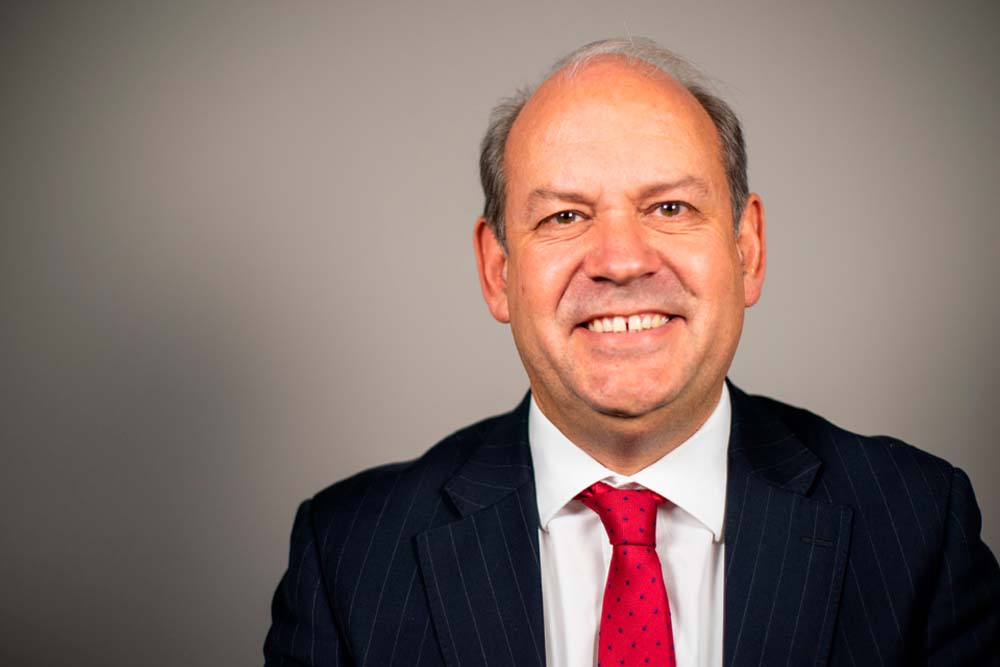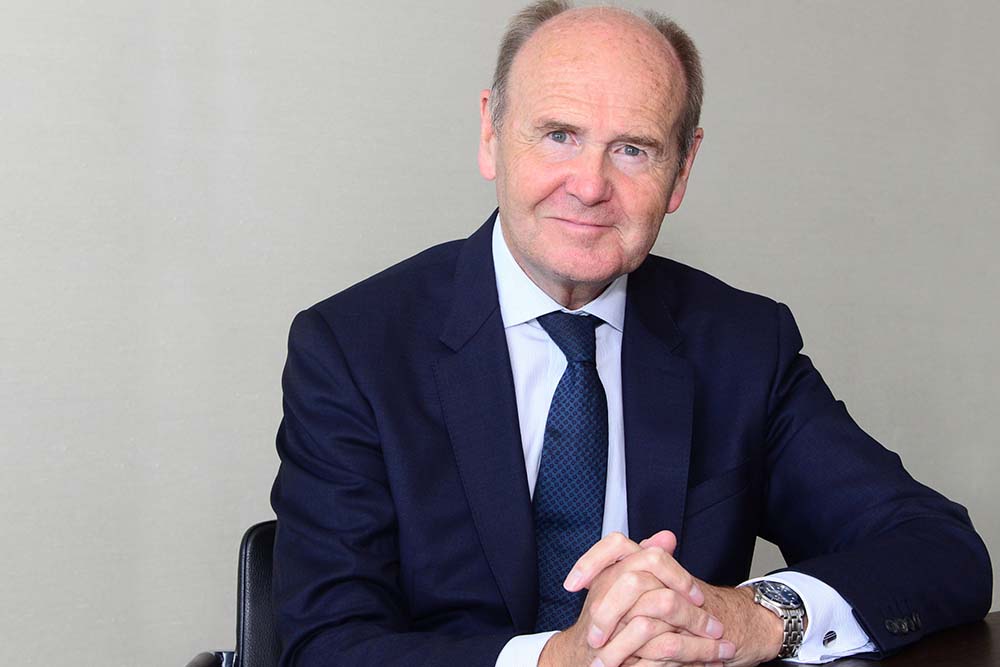There was some praise for the Integrated rail plan, although it was curbed by a watchful concern from the rail industry.
All seemed very mindful of the fact that Leeds is not getting its eastern leg, and so any praise was qualified with some level of concern or disappointment for that part of the country.
Equally, others who were pleased with elements of the plan praised these elements as a “silver lining” – not the sort of praise that the UK Government was probably hoping for.
And where praise came first, with a nod to balancing the books and keeping rail projects expedient, there was a sense that a watchful eye should be kept out for smaller towns and cities such as Bradford, making sure they are not pushed of a spotlight focused on major Northern hubs.
And where the Government suggested flexibility, there was a sense – spelled out by one commentator – that the flexibility should come at the benefit of Leeds and other cities in a similar situation wherever possible.

Mark Southwell, managing director of civil infrastructure, UK & Ireland for AECOM said: “At last the Government has shared its vision for rail investment across the North and Midlands. The decision not to deliver High Speed 2 (HS2) in full and a scaled back amount of new line for Northern Powerhouse Rail is a lost opportunity for the communities the lines would serve, as well as the rail industry which was geared up to deliver. Decarbonisation of our transport network and levelling up are two of the biggest challenges of our time and investment in a high-speed rail network will pay dividends for decades to come.
“However, there is much to welcome in today’s Integrated Rail Plan in terms of its ambition to rapidly strengthen connections between regional towns and cities, providing a catalyst for investment in areas that will bring in businesses, jobs and housing. For so many years the North and Midlands have suffered from terrible rail connections and the sooner these communities get new rail, the sooner they benefit.
“The new lines and upgrades announced today will still make a hugely positive contribution in terms of improving connectivity, increasing opportunity and enabling the important modal shift to public transport that we need to reach net-zero. Industry’s focus must now turn to delivery.
“Rail projects initiated and driven at a local level in partnerships between industry and devolved authorities break the delivery mould and enable us to look at how we can build new rail projects faster and more efficiently. AECOM is already working on schemes in this way that will bring benefits to communities within unprecedented timescales.
“Industry and government now need to work together to formulate a clear plan for how these rail schemes will be delivered. The sooner spades are in the ground, the sooner communities can benefit from the full impact of the benefits rail can bring.”
Rail Forum Midlands (RFM) acknowledges and welcomes the Government’s Integrated Rail Plan for the North and Midlands, published today. It is the first step in removing the doubt and speculation on the future development of the rail network.
Elaine Clark, CEO of RFM said; ”Our members will welcome the faster delivery and timescales for upgraded services across the North and Midlands. We recognise that political and business leaders may be disappointed that some of the gaps in the Plan and the scaling down of HS2 could hinder economic development. However, future schemes through the RNEP and optional schemes in the IRP itself may provide additional investment to address these issues.
“RFM and our members look forward to working with Government to ensure that we deliver on the significant investment in the IRP. However, the Plan states that schemes are only approved to the next stage of development at which point re-authorisation will be required. The potential bureaucracy of the approval process is a source of concern and we must ensure that this approach delivers faster and better projects. It is also a reinforcement that Government wants to see clients and the supply chain working more closely together to deliver better value for taxpayers. RFM will do everything we can to support our members as they rise to this challenge.
“It is also worth noting that the IRP will have an impact on future rolling stock requirements including depot and stabling facilities. This has the potential to provide further opportunities for investment across the North and Midlands supporting and creating more skilled jobs.”
Sir John Peace, chair of Midlands Connect said: “Today’s announcement gives businesses and local leaders the reassurance they’ve been waiting for – that HS2 is coming to the East Midlands.

“Although these plans are different in some respects to what we’d expected, there are a lot of positives in here and lots of things to be excited about – a new high speed connection between Birmingham and East Midlands Parkway, direct links onto HS2 for Derby, Nottingham, and Chesterfield and a commitment to the Midlands Rail Hub.
“Now that we have certainty, we must focus our efforts on delivery. Our challenge to Government is simple, it should move as quickly as possible to get spades in the ground and bring benefits to local people sooner.”
Dan Rogers, Director at Turner & Townsend said that an understanding of local industry skills and capacity, together with proper oversight of the newly announced projects, would be critical to the success of the Integrated Rail Plan.
“This is not the plan that some expected or hoped for and there will be justified disappointment, particularly in terms of much needed East to West connectivity in the North, with longstanding and high-profile projects being pushed aside.”
“However, there are silver linings too. This is a £96bn plan for rail which in following advice from the National Infrastructure Commission moves away from the piecemeal planning of the past. For the first time we have a coordinated approach to investment, that follows the announcement earlier this year on the formation of Great British Rail.
“The plan needs supporting with a governance model that allows projects to be formed and delivered without the political interference that too often delays investment and impacts getting projects set up for success. Benefits need to be delivered quickly if the plan is to realign and transition the UK to a low carbon economy.”
“The Government now needs to convince the communities of the North and Midlands that it is the right plan. Exceptional delivery requires investment in skills, technology, project leadership and supply chain resilience so that these schemes offer an opportunity to build long-term expertise in rail, rather than competing for capacity.
“The success of the IRP will only be realised with the kind of strong governance that we have called for in our report with the CBI this week. Programmes with Purpose: delivering success in Government’s major projects makes the case for a greater oversight role for the Infrastructure and Projects Authority as part of steps to shape a globally-leading ‘industry’ for major projects. The IRP has potential to play a leading role in that industry – addressing the twin challenges of regional inequality and net zero at home, while also creating a platform to export expertise abroad.”
Matthew Fell, CBI chief policy director, said: “High quality infrastructure is fundamental to rising living standards and levelling up the country.

“The Integrated Rail Plan is a significant investment that will go some way towards modernising our ageing rail networks and can be delivered at pace.
“But businesses across the Midlands and Northern England will be justifiably disappointed to see the goalposts have moved at the eleventh hour, and concerned that some of the areas most sorely in need of development will lose out as a result of the scaled back plans.”
Reacting to the announcement of the Integrated Rail Plan, Paul Tuohy, Chief Executive of Campaign for Better Transport, said: “There is much to welcome in the Integrated Rail Plan. Investment on this scale shows confidence in rail, and the Government is right that improvements should be implemented as quickly and affordably as possible. We welcome the commitments to electrification and to improving local transport: the Leeds metro, for instance, will make a real difference to everyday journeys.
“However, it is vital that abysmally-connected Bradford is not left behind – the city needs and deserves much better-integrated and faster rail connections to both Leeds and Manchester as a matter of priority.
“This is a plan for the future but we also need action now. Central to this must be ensuring that services are priced competitively to attract people to trains. We need fundamental reform of fares as a matter of urgency, but one thing Government could do immediately is freeze rail fares for 2022 to get more people on rail now.”
Responding to today’s publication of the Integrated Rail Plan, Sir John Armitt, Chair of the National Infrastructure Commission, said: “We now have a realistic plan for major long term investments to improve rail for the North and Midlands in the face of public spending constraints. In our advice to government the Commission made the strategic case for more investment in rail to help deliver levelling up. We set out a number of possible packages of schemes based on our analysis of the economic benefits of the various projects and depending on the level of funding made available by government.
“It is sensible that the Integrated Rail Plan takes an adaptive approach, setting out a core pipeline of investment that should speed up delivery of benefits for communities and businesses. Beyond that pipeline, if additional funding becomes available the focus should be on further improving connections between Sheffield, Leeds, Bradford and Hull which are the kind of regional links likely to enhance economic benefits.”
A High Speed Rail Group spokesperson said: “If today’s announcements had come from a standing start, the industry would doubtless have been pleased with the investment. But the reality is they represent a reduction in the previous plans for both HS2 and Northern Powerhouse Rail.
“HS2 is the single most important infrastructure project in the UK for decades. Its benefits to the country are enormous and will be felt by generations to come.
“The new high speed rail links, which will change the nation’s economic geography, are one of the very few ways to spur levelling up outside of the South East, which the Government say is their number one priority. The economic impact of high speed rail is not based on crystal ball gazing, but on the evidence we see from countries all over the world, and indeed in the UK. The impact it is already having in Birmingham on the back of existing commitments to construct Phase 1 of HS2 is clear. And the same will happen in other cities once businesses and local authorities truly believe the Government will follow through on its commitments to deliver HS2 to those places.
“High speed rail is also the most effective way to deliver more electrified rail capacity for the nation’s longer distance travel needs, and in turn reduce transport sector emissions to deliver on net zero.
“It is welcome that today’s announcement confirms that the vast majority of HS2 will go ahead, in addition to other upgrades including line of route improvements, some electrification, and some new lines, but the cut-backs are a huge disappointment, particularly to the communities they affect and particularly given the commitment to deliver HS2 “in full” which has been made by the Prime Minister countless times over the last twenty-one months. Today’s u-turn significantly dents confidence in the sector. The regular chopping and changing of the scope of projects, and revisiting questions that had previously been settled, is one of the biggest drivers of high infrastructure costs in this country – it is imperative that the Government now set out clear timescales for the proposed projects to move forward, and then stick to them.
“It remains important that the benefits of high speed rail should not be restricted to two corridors in England (HS1 & HS2), and that Government sets out how the rest of the UK is to be provided with improved connectivity and viable modal shift to low carbon rail for longer distance travel – both for people and freight. High Speed Rail Group will be analysing the proposed new HS2 and IRP routes, and will publish our conclusions in the coming weeks.”







































 0113 2082620
0113 2082620 info@railbusinessdaily.com
info@railbusinessdaily.com 15 Mariner Court, Wakefield WF4 3FL
15 Mariner Court, Wakefield WF4 3FL

